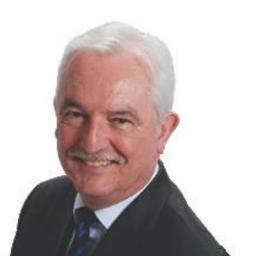Repetition of a disturbing theme

By Denzil Lush
What did a psychiatrist's expert report and Ravel's Boléro have in common? Denzil Lush recalls a difficult case involving capacity
Robin Jacoby is the emeritus professor of old age psychiatry at the University of Oxford. I first met him at a conference in 1997. After that, our paths crossed several times. I contributed a chapter on the Court of Protection to his book, Psychiatry in the Elderly (Oxford University Press 4th edition 2008).
In 2014, we were both involved in a venomous dispute about a lasting power of Attorney (LPA). My judgment in the case, The Public Guardian v CT & Anor [2014] EWCOP 51, is available on the bailii.org website.
CT was born in 1929 and worked at the Ford Motors Dagenham plant until he retired. He was married with two children – a son (born in 1949) and a daughter, EY (born in 1960). In May 2013, he had a stroke and was admitted to hospital, where he was diagnosed with vascular dementia.
Unfortunately, his debility created a schism in the family, with CT and EY aligning on one side and his wife and son on the other.
A month after the stroke, CT executed an LPA appointing EY to be his sole attorney. It was registered by the public guardian in August 2013. EY then began behaving aggressively towards her mother. She severed the joint tenancy of the matrimonial home, closed the joint bank account, stopped paying the utility bills and was even contemplating divorce proceedings in her father’s name.
When he was discharged from hospital in the November, EY drove him to her home rather than his, refusing to let anyone else have access to him. CT’s wife and son raised their concerns with the public guardian, who tried to investigate them. However, he was obstructed by EY at every turn.
Eventually, when Court of Protection proceedings initiated by the public guardian were under way, EY reluctantly agreed to have her father’s capacity assessed by a single joint expert.
Professor Jacoby was that expert. He was asked to answer ten questions, all around whether CT had capacity to do certain things. To nine of those questions, he replied: “Yes, CT does have the capacity to do this, as long as he receives independent advice.”
His responses became increasingly repetitive and more emphatic until they reached this climax: “I am not making any comment here about the quality of advice he now gets from EY, because this is beyond my remit, and I have no information on it anyway. However, because he is now entirely dependent on her, he might be more likely to accept her advice without more careful consideration.”
Tactfully but explosively, he was confirming what the readers of his report would already have concluded: the daughter had her father completely under her thumb and was orchestrating his every move.
In the judgment, I commented: “For me, the most striking feature of Professor Jacoby’s report was the repetition of a theme, which, like Ravel’s Boléro, rises continuously to a crescendo.”
Subconsciously, I was recalling a superb performance of the Boléro I had attended at the Sydney Opera House. Robin Jacoby was amused that one of his psychiatric reports had been described in this way and still reminds me of it, recently sending me a YouTube clip of a recital.
This case highlighted a deep concern that he and I share. Our laws fail to deal adequately with the grey area that exists between capacity (which is often fairly simple to establish) and undue influence (which is notoriously difficult to prove).
This grey area is inhabited by thousands of people who have relatively mild cognitive impairments but are easy prey for predators.
Denzil Lush is a retired senior judge at the Court of Protection

